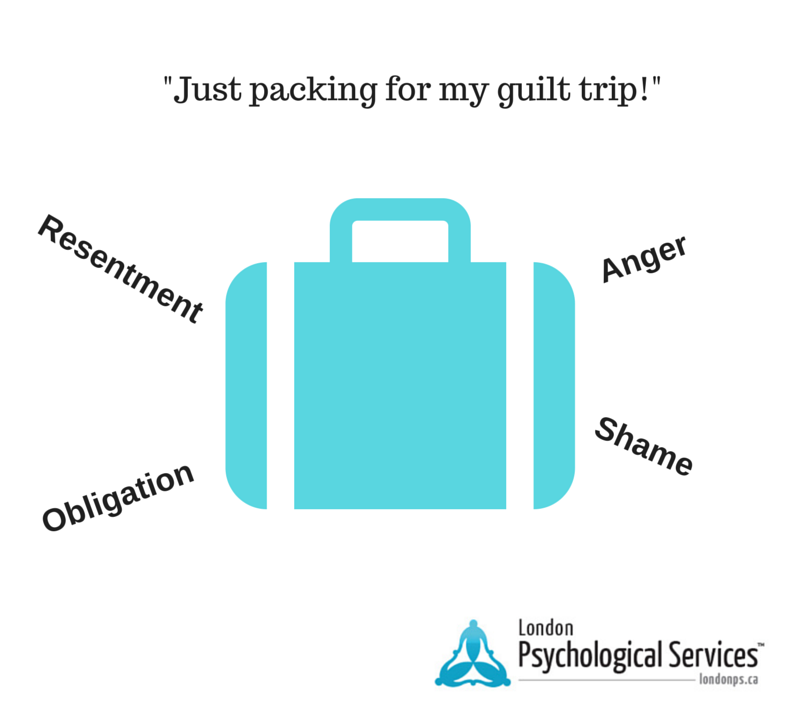Guilt is my least favorite emotion. I know, I know, all feelings have purpose and meaning, but guilt is truly awful. It makes you agree to things that you really don’t want to do so that you can avoid feeling guilty. It can breed resentment. It can make you feel ashamed. It can make you angry. Basically guilt is one of those feelings where it’s hard to see the positive. However, guilt does have a purpose.
Guilt is the response to feeling that we have done something wrong. However, how do we determine whether something is truly wrong? There are some things that we can universally agree are wrong. If you kill someone, you should feel guilty. You have done something that is wrong. However, most of the time, things aren’t necessarily this black or white. Often, we feel guilty over things that actually aren’t wrong at all. Sometimes we have defined things as wrong for ourselves. Sometimes other people have defined something as wrong for us. We may hold on to these beliefs about right or wrong without even knowing that we believe them! So, how do we start chipping away at the guilt angst?
Step 1: When you start feeling guilty, do not act on it. Do not say yes to make the guilt go away. Do not try to push the guilt away. Do not fall into a pit of self-criticism. Just sit with the guilt.
Step 2: Figure out what triggered the guilt. Was it a direct request of you? Was it an implied expectation? Was it a passive-aggressive criticism? Was it your own thoughts?
Step 3: When you have identified the trigger, define why it feels wrong. Who has defined this as wrong? You may have unrealistic expectations of yourself and not living up to them creates guilt. Other people may have defined things as wrong, but it’s just a way for them to get their own needs met. This step can be really tricky and you may need some help with this one. Sometimes it can be hard to be objective about the expectations we place on ourselves and expectations that others place on us. This can often be a focus during therapy.
Step 4: Assess your own needs. Often we do things out of guilt because we want to meet the needs of others, but totally ignore our own in the process. Are your own needs and the expectations placed on you aligned?
Step 5: Identify other possible responses rather than just giving in to the guilt.
An illustration of our five step guilt plan:
You have just had a baby. Your baby is colicky and cries for hours on end. You are not sleeping, you are barely functional. You receive an e-mail from an older family member who really wants to see you and meet the baby. They think it would be a fabulous idea for you to trek out to their place, which happens to be two hours away. This person has a tendency to make remarks about family responsibilities and the importance of making an effort to stay connected with family. Your immediate internal response is “heck no!”.....and then the guilt sets in. What will they think if you say no? You’re off of work anyway, why can’t you go? What if they tell other family members that they haven’t met the baby and it’s all your fault? Why should you drive all the way out there? Because that’s what nice people do.....guilt, guilt, guilt.
Step 1: STOP. Hello guilt, my old friend. Nice of you to stop to by for a visit, let’s hang.
Step 2: Trigger – request from another person to do something that feels really, really hard.
Step 3: Is saying no to the request WRONG?
Is there something wrong in turning down an invitation?
Is it wrong to potentially disappoint another person?
Does saying no to the request make you a bad family member?
Step 4: You are exhausted, overwhelmed and need to do the bare minimum (other than keeping another human being alive). A long drive and visit is not manageable for you.
Step 5: Provide an alternate plan to your family member; “We would love to see you but driving that long is really not doable right now. You are more than welcome to visit us at home.”
Easy, right?!? Ha, not so much! I wish that guilt could be banished this easily but that would not be a realistic expectation. Our guilt is often tied to core beliefs that we have about ourselves, others and our relationships. These can’t simply be broken through in 5 easy steps. However, these steps may help you start developing an awareness of how you can start to change your relationship with guilt. If you think that this is an area that you would like further help with, please get in touch. I would love to help you turn down the ticket to your next guilt trip.









